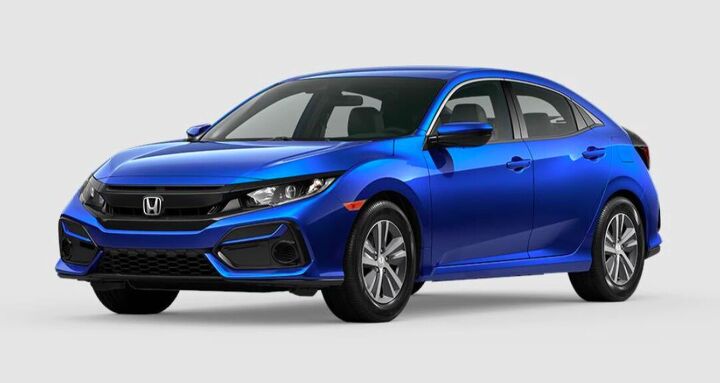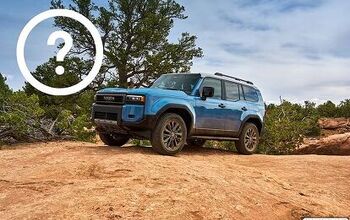Getting Back to Normal? Far From It - U.S. Rife With Gloomy Consumers, Young Car Buyers Lowering Their Expectations

Consumer spending and confidence are not hitting record highs. Go figure. As the pandemic rages and a vast swath of formerly gainfully employed Americans find their financial future much hazier then before, new car sales are suffering. It doesn’t bode well for sales volume during the remainder of the year.
Of course, that pain is not spread evenly among all automakers, but let’s set the OEMs’ concerns aside for a moment. What are actual buyers and doing — and thinking?
According to a Cox Automotive consumer impact study of 1,000 U.S. consumers, the coronavirus has knocked numerous Americans out of the new car market, at least temporarily. For others, the new reality has led to a lowering of expectations. Maybe that next car doesn’t have to be quite as extravagant.
Even during the lockdown, as in the early stages of the pandemic, some 20 percent of survey respondents said they felt they’d be in the market for a vehicle in the next six months. That slice of hopeful consumers sank to 17 percent in the reopening phase (May to mid-June). At last report, following the first week of August, only 15 percent of consumers claim the’ll be looking to get into a new ride in the coming half-year.
For those who were planning to buy, it seems fewer people have an excuse to not look. At the height of the lockdown, in April, some 34 percent of respondents said they were delaying a new vehicle purchase or lease due to the virus, up from 17 percent in early March. That figure’s down to 26 percent on August 7th-8th, with Gen Z, X, and Boomers listing cost concerns and their own financial situation as the top reason. Millennials most often cited social distancing/staying at home for the delay.
Which isn’t to say everything’s rosy for Millennials during the pandemic. Employment is perilous, and government stimulus and employment insurance is not infinite in either scope or duration. At last check, some 53 percent of survey respondents reported some kind of employment disruption (reduced hours, pay cut, layoff, furlough, etc), down from 62 percent during the lockdown and 57 percent in late June.
Of note, the study found that some 23 percent of vehicle owners used a dealership service pickup/delivery service since the onset of the pandemic — your author included. Eighty-five percent of respondents claim they were satisfied with the service, with only 2 percent saying it sucked. Thirteen percent were neutral on the matter.
But back to buyers. With their broader fiscal stability, Boomers proved least likely to respond that they had adjusted their new vehicle price range (36 percent), while Gen Z and Millennials were most likely to opt for something cheaper (58 percent for both). Of those groups replying in the affirmative, 75 percent of Boomers said they were looking for a more inexpensive vehicle, with Millennials close behind at 73 percent. Some 65 percent of Gen Z buyers in the process of shifting their price window were looking to spend less.
For these same window-shifting respondents, 18 percent of Gen Z, 17 percent of Millennials, and 14 percent of Boomers were now looking to spend more. As for Generation X, 49 percent said they had shifted their price range, with 69 percent of that group saying cheaper was the way to go. Seventeen percent said a pricier vehicle was now in the cards.
“Affordability issues are paramount for shoppers who have been financially impacted, with Gen Z and Millennials the hardest hit,” said Cox Automotive. “That makes the potential for a second round of stimulus payments and the extension of additional unemployment benefits something to keep an eye on.”
It also leads us to keep an eye on entry-level products like compact and subcompact cars, both segments which have suffered greatly over the past couple of years, as well as sales of premium automobiles and high-priced pickups.
[Image: Toyota, Honda]

More by Steph Willems
Latest Car Reviews
Read moreLatest Product Reviews
Read moreRecent Comments
- Jrhurren Worked in Detroit 18 years, live 20 minutes away. Ren Cen is a gem, but a very terrible design inside. I’m surprised GM stuck it out as long as they did there.
- Carson D I thought that this was going to be a comparison of BFGoodrich's different truck tires.
- Tassos Jong-iL North Korea is saving pokemon cards and amibos to buy GM in 10 years, we hope.
- Formula m Same as Ford, withholding billions in development because they want to rearrange the furniture.
- EV-Guy I would care more about the Detroit downtown core. Who else would possibly be able to occupy this space? GM bought this complex - correct? If they can't fill it, how do they find tenants that can? Is the plan to just tear it down and sell to developers?



































Comments
Join the conversation
What will happen in the short term the sales of used vehicles will increase and the prices will continue to increase. Long-term there will be less expensive newer vehicles from China and Vietnam after the trade war with China subsides. Small crossovers and small cars that are not selling as well will come back as an affordable option. If this does happen GM and Ford will import smaller and more affordable vehicles made in China and Vietnam and leave the higher profit vehicles to manufacture in the USA. There are still plenty of late model sedans that are available that are still more affordable than trucks, suvs, and crossovers but eventually the supply of cheaper sedans will dry up. GM and Ford might decide to re-enter the entry level market but they will more than likely import them from countries with cheaper labor such as China, Vietnam, and Mexico.
All I can say is, "Damn this pandemic!"